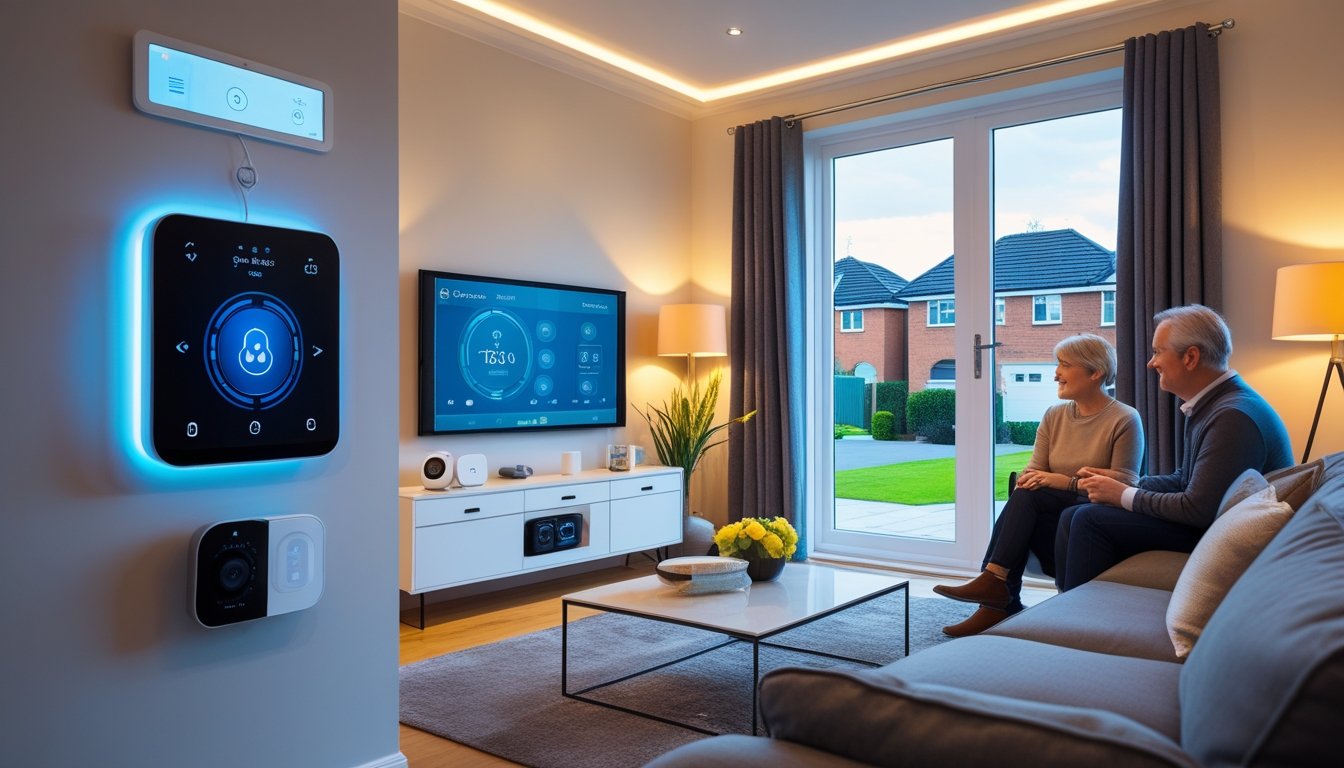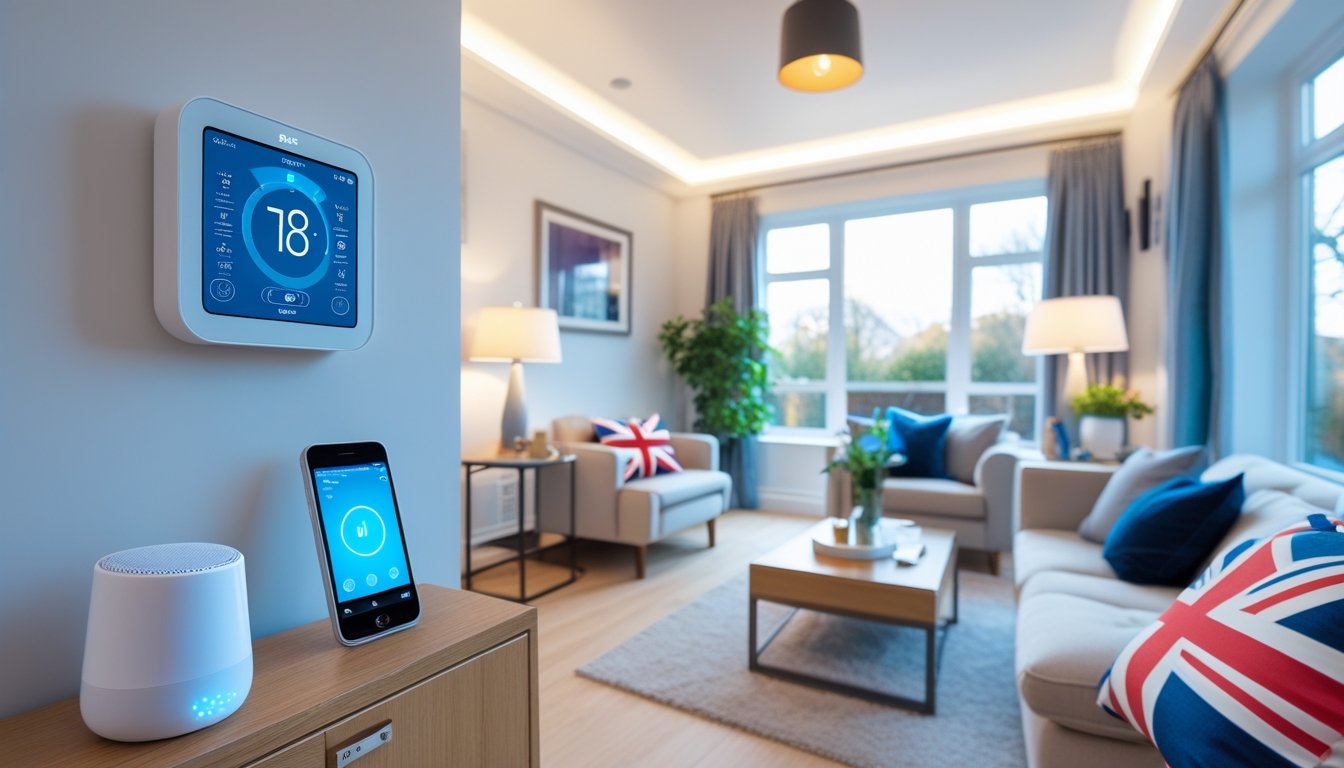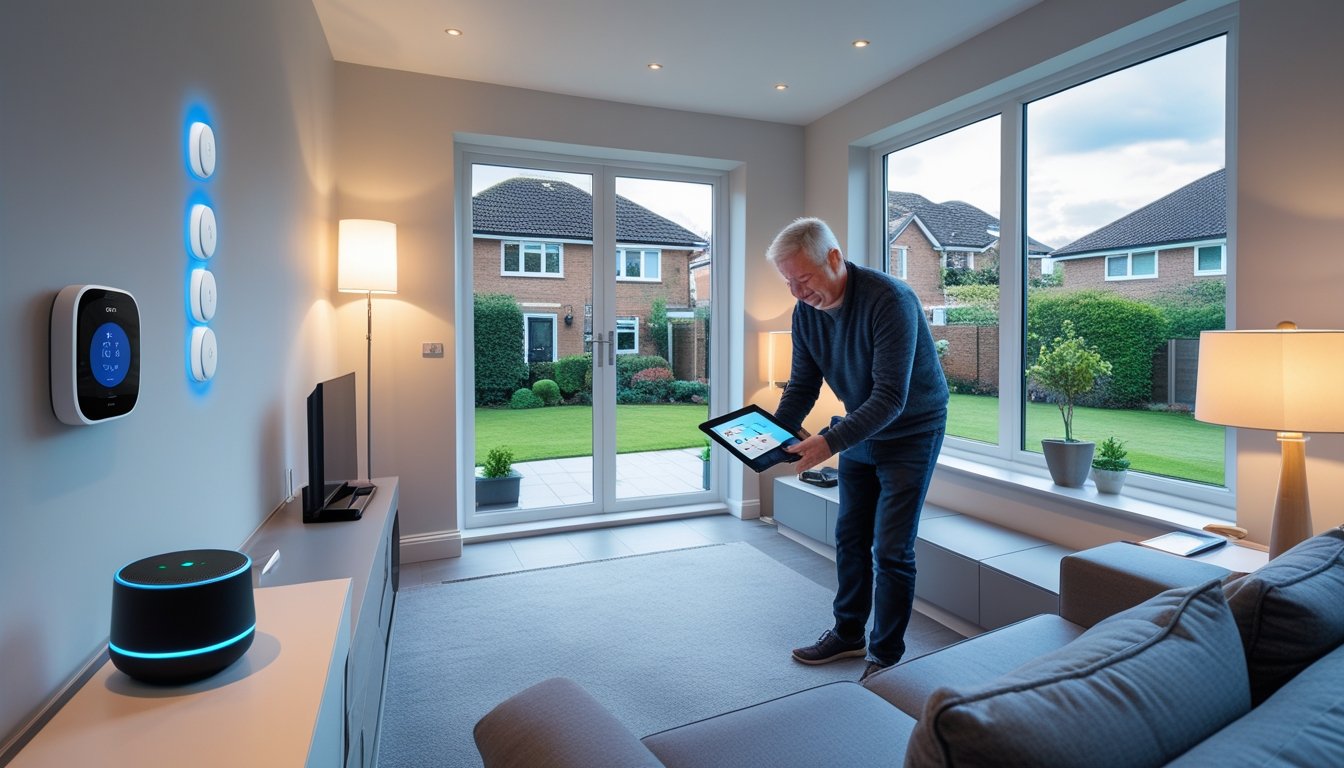Late updated: 27 Aug 2025 09:08
Written by: Oliver Bennett
Smart Home Technologies For UK Homeowners: Innovations For Modern Living
Smart home technology is rapidly redefining how we interact with our living spaces. In the UK, more homeowners are embracing this trend, transforming their homes into environments that offer enhanced security, energy efficiency, and convenience. With the right smart home systems, UK homeowners can enjoy a seamless lifestyle, where everything from lighting to security is controlled effortlessly.

Imagine walking into a home where the lights adjust to your presence, the temperature is just right, and everything is at your fingertips with a simple voice command or tap on your phone. Implementing such a smart home ecosystem not only improves our daily routines but also adds significant value to our properties. It's no wonder that a large portion of UK homeowners are making the shift to smart technologies.
Key Takeaways
- Smart homes provide convenience and enhanced security.
- Technology integration increases property value and efficiency.
- Customisable systems cater to individual household needs.
Core Smart Home Technologies for UK Homeowners

In our exploration of smart home technologies available to UK homeowners, we focus on four key areas. These areas significantly enhance convenience, improve energy efficiency, and bolster security in homes. Adopting such technologies ensures that homes are more connected, responsive, and better prepared for the future.
Smart Lighting Systems
Smart lighting systems, such as Philips Hue and LIFX, offer customisable lighting solutions that can be controlled with a smartphone or voice assistant. These systems allow us to adjust brightness, colour, and scheduling to fit our moods and daily routines. Motion sensors can automate lights, ensuring they only remain on when needed, thus contributing to energy savings and enhancing security.
Smart lighting can also integrate with other smart devices, like video doorbells, to offer additional functionalities. This integration not only elevates our home’s technology but also improves its energy performance certificate (EPC) rating. Such features make smart lighting a valuable addition to any modern UK home.
Smart Thermostats and Heating Controls
Smart thermostats, such as Nest and Hive, give us precise control over our home’s heating system. They learn our schedules and preferences, optimising energy use and ensuring comfort throughout the day. By using these devices, we can monitor our energy consumption and develop patterns to reduce waste, positively impacting our energy bills and the environment.
Smart thermostats are also pivotal for maintaining an optimal EPC rating, crucial for property values in the UK. Remote access via smartphones means we can adjust settings when away, ensuring efficiency without sacrificing comfort. These smart heating controls make our homes adaptable and cost-effective.
Connected Security Solutions
Smart security systems, including security cameras, video doorbells, and smart locks, provide robust security solutions for our homes. By offering remote monitoring, these systems allow us to check on our property from anywhere, anytime. For instance, video doorbells can show live feeds of visitors, while smart locks enable us to manage entry access remotely.
The flexibility and immediacy of connected security solutions add an extra layer of assurance. They integrate seamlessly with other smart home devices and can alert us in real-time to any unusual activities, ensuring that we are always connected to our home's security wherever we are.
Smart Plugs and Energy Monitoring
Smart plugs transform ordinary appliances into smart devices, offering sophisticated energy monitoring capabilities. By plugging devices into these smart adapters, we can track their power consumption and identify energy-saving opportunities. This insight helps us optimise our energy use and reduce unnecessary energy expenditure.
Additionally, smart plugs facilitate the scheduling of appliances, automatically turning them off when not needed. This kind of automation can contribute to improved energy efficiency and subsequently a better EPC rating. As energy costs continue to rise, smart plugs offer a cost-effective method to manage our home’s power use more intelligently.
Building a Seamless Smart Home Ecosystem

Creating a seamless smart home ecosystem involves careful planning and integration. We aim to connect various smart devices harmoniously while ensuring they work efficiently with voice-activated assistants and are compatible with evolving standards like Matter. This promises versatility and ease for any UK homeowner venturing into smart technologies.
Choosing the Right Smart Home Platform
Selecting the appropriate platform is crucial for a unified smart home experience. Amazon Alexa, Google Assistant, and Apple HomeKit are popular options in the UK smart home market, each offering unique features. Alexa and Google Assistant focus on broad device compatibility, while HomeKit prioritises security and privacy.
Consider the ecosystem's scale, whether starting with a few smart bulbs or integrating multiple IoT devices. Each platform provides varying levels of automation and control. For instance, Google Assistant excels in home automation with robust integration capabilities, while Alexa offers extensive skills for compatibility with numerous smart devices. Assessing our priorities like security, compatibility, and ease of use will guide us in choosing the most suitable platform for our homes.
Integration with Voice-Activated Assistants
Voice-activated assistants such as Amazon Alexa, Google Assistant, and Siri can revolutionise how we interact with our smart homes. These assistants allow hands-free control of smart TVs, lights, thermostats, and more. Seamless integration enhances convenience, creating a responsive environment that caters to our needs instantly.
Configuring these assistants requires linking each device to the platform's app and setting up routines or scenes for frequently performed tasks. We must ensure our network and devices are correctly configured for optimal performance. Voice recognition improvements have made these assistants more adept at understanding commands, making our interactions more efficient and precise.
Device Compatibility and the Matter Standard
The Matter standard aims to simplify device compatibility across various platforms. By providing a universal protocol, it ensures that devices from different manufacturers work together, reducing the fragmentation in smart home systems. This standard is crucial as it helps maintain a cohesive ecosystem with less technical issues.
When building our smart home, choosing Matter-certified devices enhances interoperability, making it easier to integrate new gadgets. The protocol supports popular voice-activated assistants and operates over common networking technologies like Wi-Fi and Ethernet. As more manufacturers adopt Matter, our smart home becomes more adaptable and future-proof, enabling us to expand our ecosystem effortlessly.
Frequently Asked Questions
Smart home technologies offer numerous benefits, from enhancing comfort to improving energy efficiency. In this section, we explore common queries UK homeowners have about smart home devices and trends.
What are the best smart home devices currently available in the UK?
Several brands offer top-notch devices. Our favourites include Philips Hue for smart lighting, the Nest Learning Thermostat for efficient heating, and the Ring Video Doorbell for enhanced security. These devices are favoured for their ease of use and compatibility with various platforms.
How can smart home technology contribute to energy savings in UK households?
Smart thermostats like Nest or Hive can learn our schedules, reducing energy usage by adjusting heating when we’re not home. Smart lighting solutions such as Philips Hue can be programmed to turn off when not needed, further cutting down on electricity usage and potentially reducing bills.
Which smart home devices are most commonly found in UK homes?
Common devices include smart speakers like Amazon Echo and Google Nest, which control other gadgets and offer voice assistance. Smart plugs and light bulbs, which can be managed via smartphone apps, are also popular for their convenience and cost-effectiveness in daily use.
What are the emerging trends in the UK smart home market?
The UK market sees a rise in interoperability through technologies like Matter, allowing devices from different brands to work together seamlessly. There's also an increase in the use of energy-efficient and eco-friendly technologies, as well as a greater focus on privacy and security features in new devices.
How do smart home technologies impact home security for UK residents?
Advanced cameras and doorbells, such as those by Arlo and Ring, allow us to monitor our homes remotely. Smart locks improve security by letting us control access from anywhere. These technologies deter intruders and give homeowners peace of mind by providing real-time alerts and 24/7 monitoring.
Can you list some examples of how smart home technology can enhance everyday living for homeowners in the UK?
Smart home tech simplifies our daily routines. We can automate lighting, control home temperatures, or even preheat the oven using apps. Voice-activated assistants help manage schedules or provide information on command. This technology makes our lives more convenient by integrating into existing routines effortlessly.
